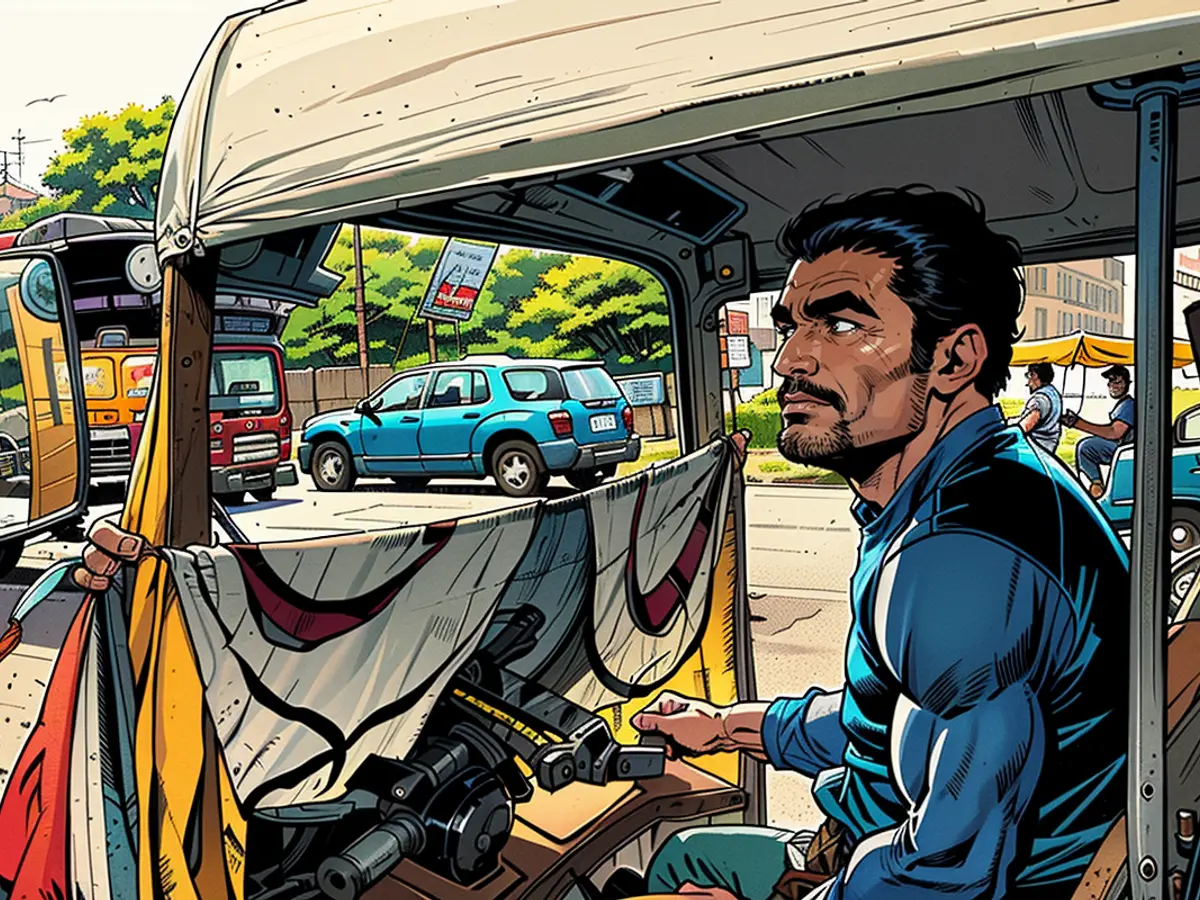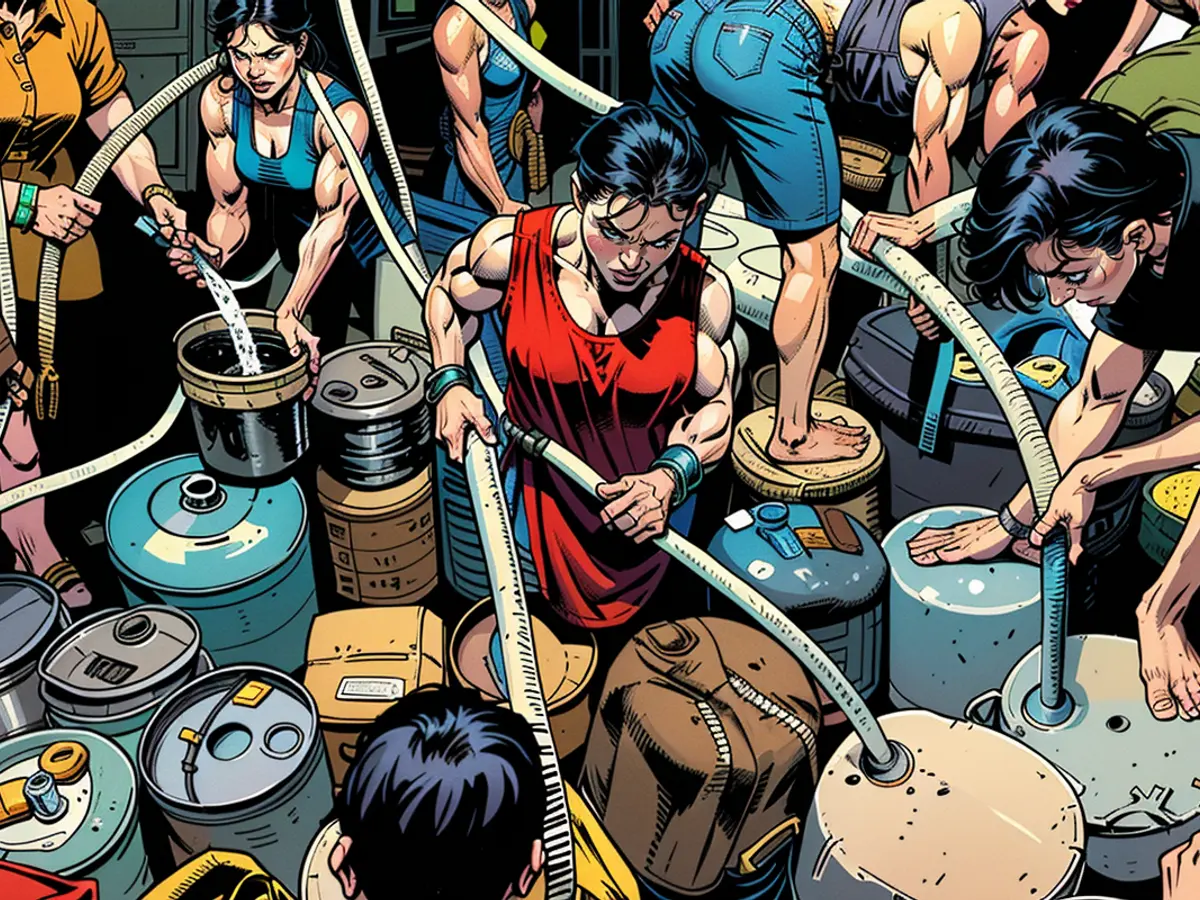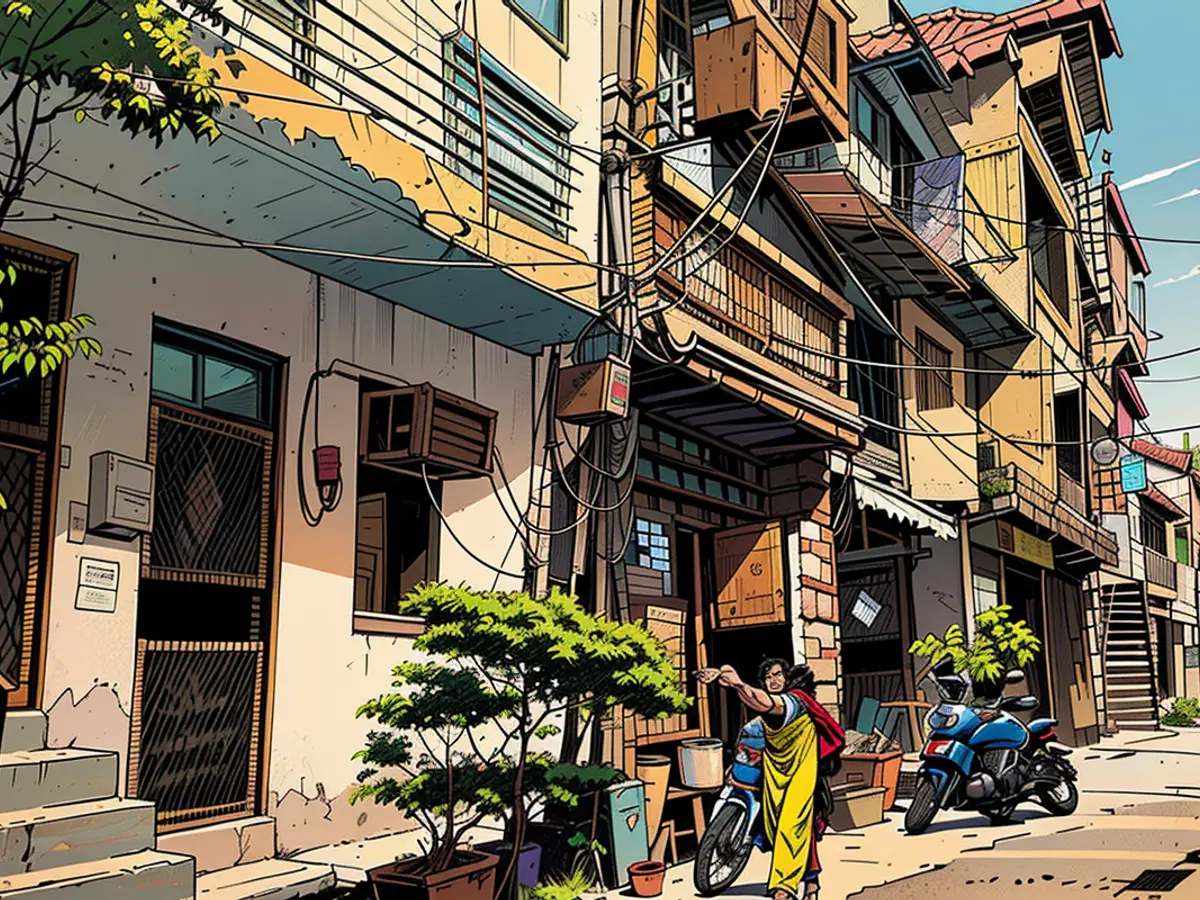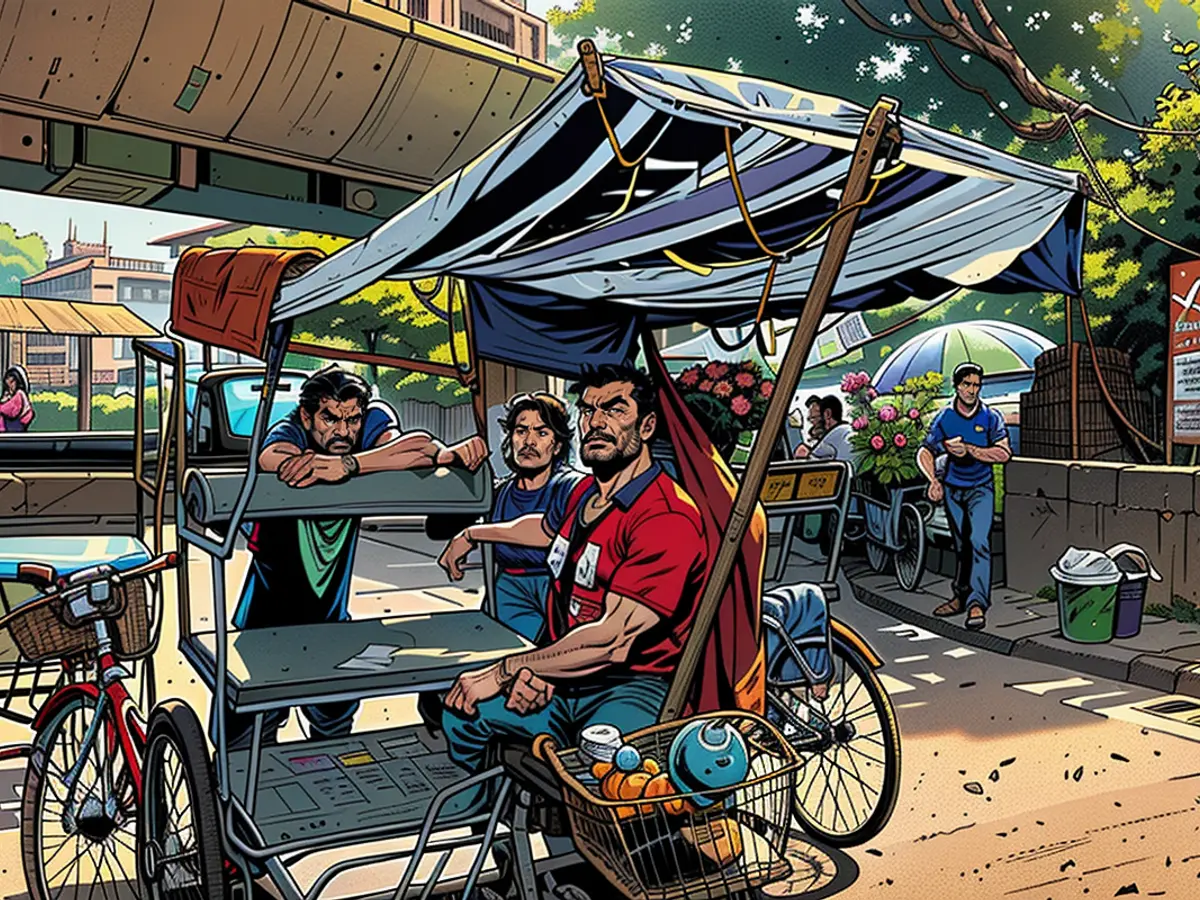Harsh chilly nights offer scant relief for Delhi dwellers amidst India's relentless heatwave.
In the sizzling summer of Northern India, the capital city of Delhi has been broiling under record-breaking temperatures. The city's mercury recently soared to an eye-watering 121.8 degrees Fahrenheit (49.9 degrees Celsius), setting a new national record.
Even as day turns into night, the city refuses to cool down significantly. Comparatively, urban outskirt areas are cooling down by a more comfortable 12.2 degrees Celsius. This was found in a report published by the Centre for Science and Environment (CSE) last month, focusing on urban heat stress in Delhi.
This persistent heat wave leaves people struggling to find respite, particularly those without air conditioning. Bicycle rickshaw driver, Sagar Mandal shared that he's been losing passengers due to people's preference for air-conditioned taxis over open-air transport. "My body can't take it, but I have to keep cycling. We're used to physical labor, but this heat is not normal, something needs to change," Mandal lamented.
Auto-rickshaw driver, Nikhil Kumar revealed that his workdays are grinding longer and tougher due to the sweltering heat. "It doesn't get better at night; even at night I'm sweating. It rained a little last night, but look how hot it is today. There's no relief," he stated.
Experts have cautioned that the scorching nights could be a consequence of the climate crisis. This escalates the health hazards associated with heat stress. Studies have shown that higher nighttime temperatures make falling asleep more difficult and reduce deep wave and REM (rapid eye movement) sleep, which are essential for the body's nightly repair and refreshment process.

In the United States, for instance, nights are warming faster than days in most of the country, as per the 2018 National Climate Assessment. Mandal, the cycle-rickshaw driver, shared that he's been seeking refuge on the roof of his home for a bit of cooler air but can only manage a few hours of sleep.
Heat waves during pregnancy could potentially lead to adverse outcomes such as preterm birth. Older adults may experience increased heart rates and physiological stress when sleeping in warmer temperatures. A 2008 Australian study even found that deaths due to mental and behavioral disorders rose during heat waves, particularly among the elderly.
The increasing nighttime heat is more prevalent in cities like Delhi due to the urban heat island effect. Areas consisting of extensive asphalt and concrete buildings absorb more of the sun's heat, in comparison to areas with parks, rivers, and tree-lined streets. This heat wave is pushing the limits of India's electricity grid and water supply, endangering public health.
Resident Kalyani Saha, living in the Lajpat Nagar neighborhood of the capital city for over four decades, shared that the neighborhood hasn't experienced a summer as intense in its history. "There hasn't been power for the last two hours in the middle of the day, which is unbearable," Saha stated.

She also emphasized that their only water supply is scalding hot, forcing residents to let it cool overnight before use. A week-long illness afflicted her grandchild, and she attributed it to the unbearable heat. "Small children can't handle this… it's not humanly tolerable heat," she said.
Since March, at least 40,000 cases of heat stroke have been reported in India, as per the Ministry of Health. Over 110 deaths due to suspected heat stroke have been reported across the country. The heat waves have led to over 17,000 fatalities in India over the past five decades, according to a 2021 study.
A record 192 heatwave-related deaths among the homeless population were reported in Delhi between June 11 and 19, according to a report from the NGO Centre for Health Development India. The report stated that almost everyone living on the streets reported experiencing sleeplessness.
"A house we've got, but it's cramped with so many of us, and when the lights go out, it becomes suffocating," Kumari expressed.

Read also:
Despite the global efforts to combat climate change, heatwaves like this one in Delhi are becoming more prevalent worldwide. For instance, according to a report published by the National Bureau of Economic Research, nighttime temperatures in many cities across the world are rising faster than daytime temperatures.
In light of India's growing concern with heat-related health issues and energy consumption, it's crucial that the country begins addressing these issues on a global scale, collaborating with countries like the United States to share knowledge and solutions.







